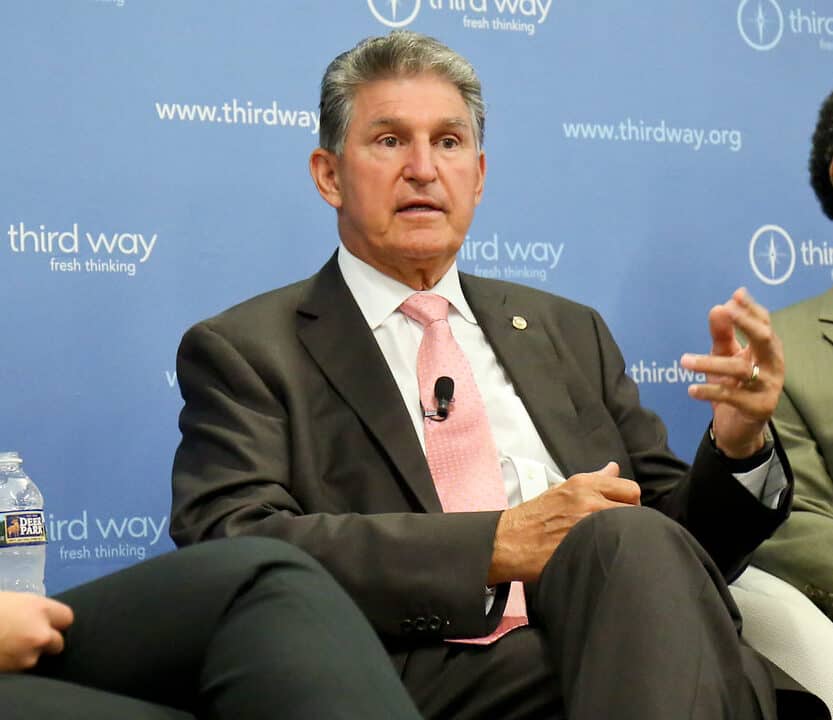 "Senator Joe Manchin (WV)" by Third Way Think Tank. Licensed under CC BY-NC-ND 2.0
"Senator Joe Manchin (WV)" by Third Way Think Tank. Licensed under CC BY-NC-ND 2.0
West Virginians don’t want EVs… only 390 electric vehicles were sold in West Virginia in 2021
Negotiations between Senate Democrats on the climate portion of their trillion-dollar tax and spending package hinges largely on the design of an expanded tax credit for electric vehicles that would benefit wealthy blue states like California at the expense of West Virginians.
Bloomberg News reported that negotiations between Sen. Joe Manchin (D-W.Va.) and Majority Leader Chuck Schumer (D-NY) on climate spending are ongoing and involve haggling over an income cap on individuals allowed to claim the expanded EV tax credit.
The House-passed version of Democrats reconciliation package allowed high-earners with an income of $800,000 to claim a $12,500 subsidy on a vehicle valued up to $74,000. In contrast, the average household income in West Virginia is roughly $48,000.
Any expansion of the EV tax credit will redistribute wealth from lower-income individuals to higher earners. West Virginians in particular will be on the losing end of any deal Manchin strikes to increase the EV tax credit as taxpayers in the state will disproportionately subsidize out-of-state vehicles.
Only 390 EVs were sold in West Virginia in 2021.
According to sales data from the Alliance for Automotive Innovation, only 390 EVs were sold in West Virginia throughout all of 2021.
In total, West Virginia had only 600 Electric Vehicles registered in the state at the end of 2020, accounting for 0.06 percent of all EV registrations in the country. These 600 EVs account for a miniscule portion of the 1.6 million vehicles registered in West Virginia.
For comparison, California has a whopping 425,300 registered EVs in the state and accounts for 42 percent of total EV registrations in the U.S.
West Virginia ranks 46th out of 50 states for the number of registered EVs and is 49th in EV registrations per capita.
83 percent of tax filers claiming EV credits earn more than $100,000
EV tax credits are disproportionately claimed by higher-income taxpayers. Most of the tax credits (78%) are claimed by filers with an adjusted gross income of $100,000 or more, and those filers receive an even higher proportion (83%) of the amount of credits claimed, according to the Congressional Research Service.
Taxpayers with an annual income exceeding $1 million account for 8 percent of all credits claimed. This should come as no surprise given the sticker price of a new electric vehicle typically ranges from $40,000 – $80,000. Subsidizing luxury cars is targeted welfare for the wealthy.

